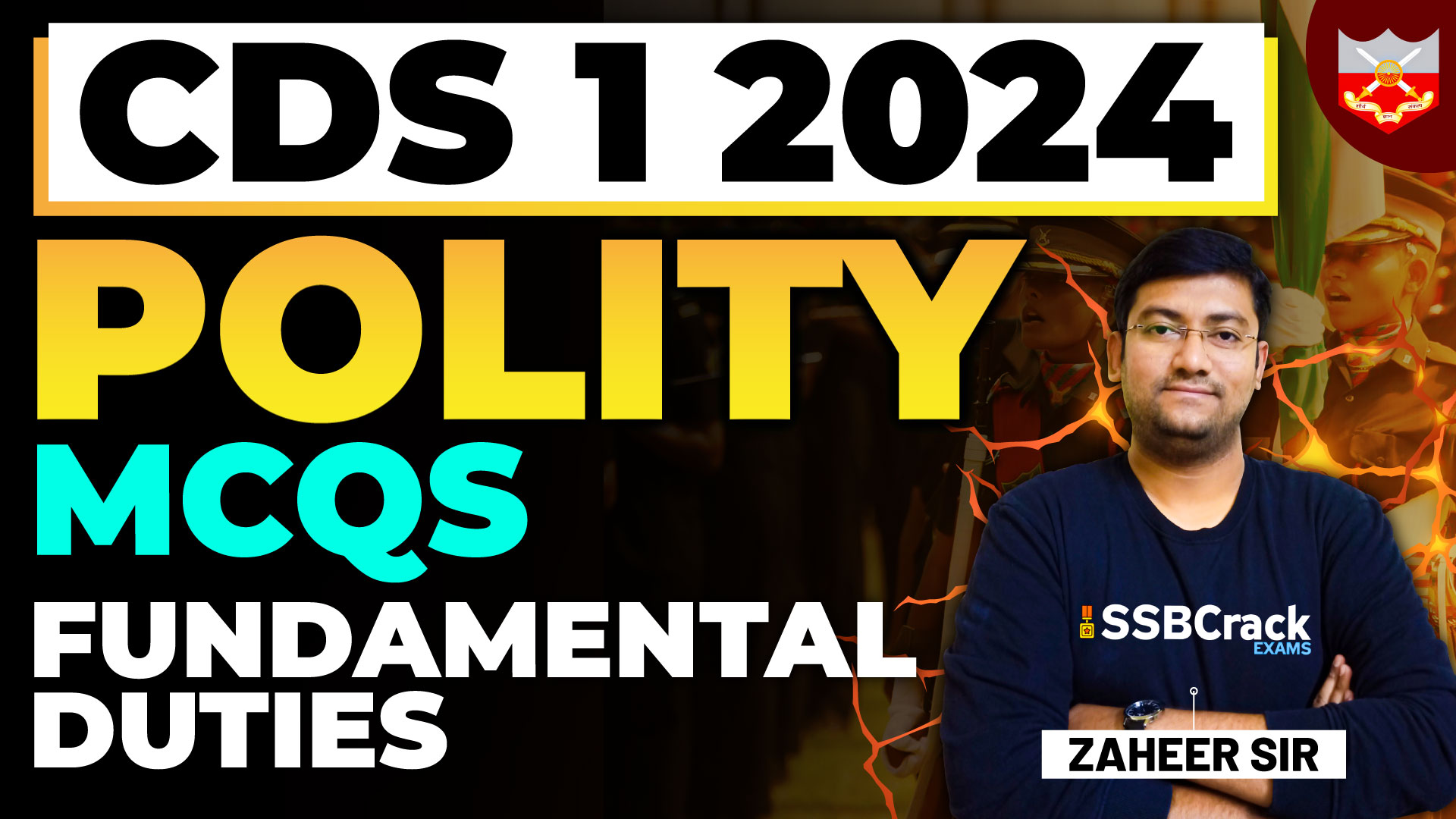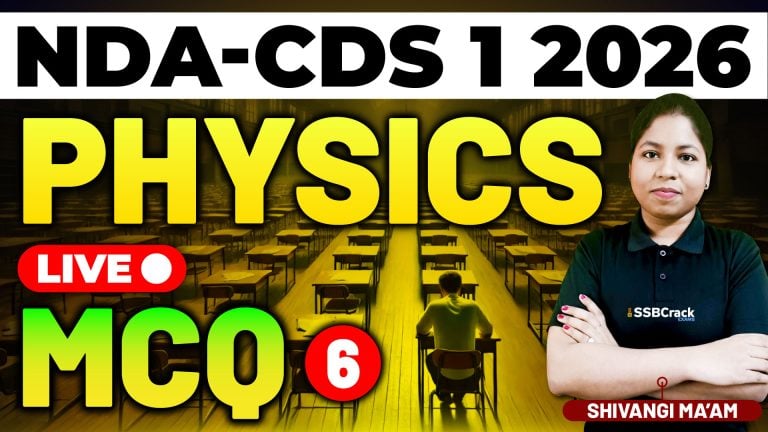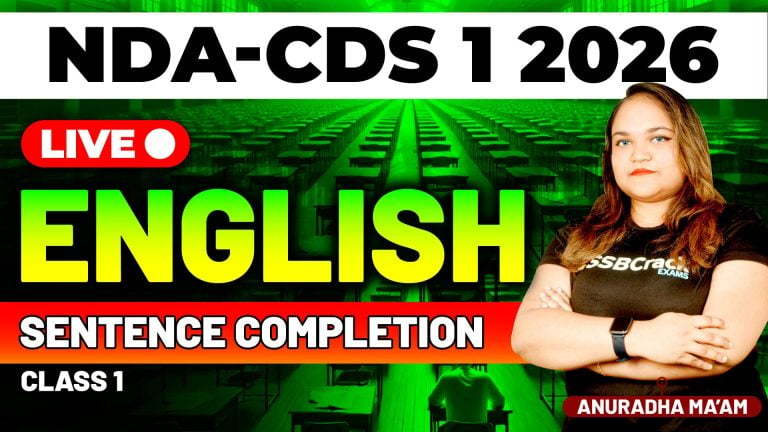In the realm of competitive exams like the Combined Defence Services (CDS), the importance of understanding Fundamental Rights in Indian Polity cannot be overstated. As aspirants gear up for CDS 1 2024, one crucial aspect that demands meticulous attention is mastering the concepts of Fundamental Rights, and what better way to achieve this than through dedicated MCQs solving classes?
Fundamental Rights, enshrined in Part III of the Indian Constitution, are the bedrock of India’s democratic framework. They guarantee essential liberties and freedoms to citizens, ensuring social, economic, and political justice. For candidates aiming to join the defence forces, a comprehensive understanding of these rights is indispensable.
Here’s why MCQs solving classes focusing on Fundamental Rights are paramount:
- Examination Relevance: The CDS examination rigorously tests candidates on various aspects of Indian Polity, including Fundamental Rights. MCQs are a predominant format in these exams, and adeptly solving them requires both conceptual clarity and quick thinking. A specialized class targeting MCQs equips candidates with the skills to navigate through diverse question patterns effectively.
- Conceptual Understanding: MCQs solving classes delve deep into the intricacies of Fundamental Rights, aiding aspirants in grasping the nuances of each right, its scope, limitations, and interplay with other constitutional provisions. This goes beyond mere rote memorization, fostering a profound comprehension of the subject matter.
- Time Management: Time is of the essence in competitive exams, and candidates must efficiently utilize every minute allotted. MCQs solving classes instill strategies for time management, teaching students how to identify key information, eliminate incorrect options, and make informed choices swiftly—a skill indispensable for success in the exam hall.
- Holistic Preparation: While focusing on Fundamental Rights, MCQs solving classes often touch upon related topics such as Directive Principles of State Policy, Fundamental Duties, landmark judicial pronouncements, and contemporary issues pertaining to rights and freedoms. This holistic approach not only enhances subject proficiency but also enriches the candidate’s overall understanding of Indian Polity.
- Confidence Boost: Aspirants often face apprehension and self-doubt during exam preparation. Engaging in MCQs solving classes provides a conducive environment for learning and self-assessment. Regular practice builds confidence, hones problem-solving skills, and mitigates exam anxiety, empowering candidates to approach the CDS examination with a positive mindset.
- Interactive Learning Environment: MCQs solving classes foster an interactive learning atmosphere where students can engage with experienced instructors and peers. This facilitates clarifying doubts, exchanging insights, and benefiting from diverse perspectives, thereby augmenting the learning experience manifold.
In conclusion, MCQs solving classes focusing on Fundamental Rights in Indian Polity are not just another facet of exam preparation but a vital catalyst for success in the CDS 1 2024 examination. They serve as a bridge between theoretical knowledge and practical application, equipping aspirants with the requisite skills and confidence to excel in this competitive arena. Embracing these classes is not merely a choice but a strategic imperative for those aspiring to don the uniform and serve the nation with distinction.
Fundamental Rights MCQs
Which One Among The Following Is Not A Fundamental Right Under The Constitution Of India?
A) Right To Equality
B) Right To Freedom
C) Right To Citizenship
D) Right Against Exploitation
Answer: C
Which Of The Following Is Not Guaranteed Under Article 19?
A) Right To Freedom Of Speech And Expression.
B) Right To Assemble Peacefully And With Arms.
C) Right To Form Associations Or Unions Or Co-Operative Societies.
D) Right To Move Freely Throughout The Territory Of India.
Answer: B
Which Of The Following Provides For Complete Equality Of Men & Women In India
A) Article 14 & 15
B) 5th Schedule
C) India Independence Act
D) Article 25
Answer: A
_________ Prohibits Discrimination On The Grounds Of Religion, Race, Caste, Sex Or Place Of Birth, Or Of Any Of Them.
A) Article 14
B) Article 15
C) Article 16
D) Article 17
Answer: B
Choose The Correct Statement With Respect To Freedom Of Speech And Expression In India?
A) It Is Enshrined In Part Iii Of The Constitution
B) It Is Not An Absolute Right To Express One’s Thoughts Freely.
C) It Can Be Suspended In An Emergency.
D) All The Above
Answer: D
For More MCQ’s On This Topic Refer To Above Video & Attached Pdf







